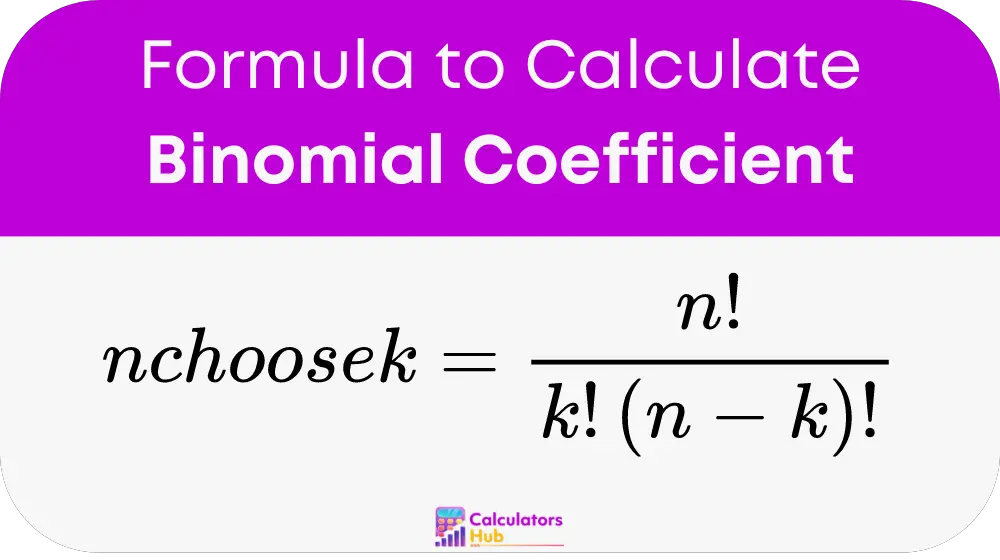The binomial coefficient, often represented as “n choose k”, quantifies the total ways to select k items from n items without considering the order. This coefficient is critical in fields ranging from mathematics to computer science, where such calculations help in deriving probabilities, among other statistics.
Formula of Binomial Coefficient Calculator
The binomial coefficient is calculated using the formula:

where:
- n! denotes the factorial of n, the product of all positive integers up to n
- k! denotes the factorial of k
- (n-k)! denotes the factorial of (n-k)
Example Calculation: To determine how many ways we can choose 3 books from a shelf of 8, we calculate: n = 8, k = 3 8 choose 3 = 8! / (3!(8-3)!) = 40320 / (6*120) = 56 ways
Calculation Table
A table of binomial coefficients for commonly encountered n and k values can be immensely helpful:
| n/k | 0 | 1 | 2 | 3 | 4 | 5 |
|---|---|---|---|---|---|---|
| 0 | 1 | – | – | – | – | – |
| 1 | 1 | 1 | – | – | – | – |
| 2 | 1 | 2 | 1 | – | – | – |
| 3 | 1 | 3 | 3 | 1 | – | – |
| 4 | 1 | 4 | 6 | 4 | 1 | – |
| This resource aids in quick verifications and calculations, facilitating smoother and faster problem-solving. |
Example of Binomial Coefficient Calculator
Simple Example: Calculate the ways to choose 2 fruits from a basket of 5 different fruits. 5 choose 2 = 5! / (2!(5-2)!) = 120 / (2*6) = 10 ways
Complex Example: Estimate the probability of drawing 2 aces from a deck of 52 cards. 52 choose 2 = 52! / (2!(52-2)!) = 52*51 / 2 = 1326 combinations
Most Common FAQs
The result is zero, as selecting more elements than available is not possible.
Utilizing calculators or computational tools is recommended to handle large numbers efficiently and accurately.
While exact calculations are best, using properties of factorials and simplifications like Stirling’s approximation can expedite the process.